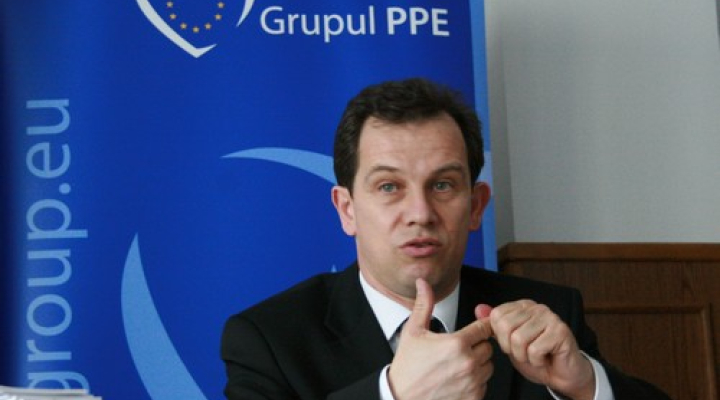One million citizens from one fifth of the member states will be able to initiate European legislation in the future
Most of Csaba Sógor’s amendment proposals were accepted.
The European Parliament’s Committee for Civil Liberties, Justice and Home Affairs (LIBE), that Csaba Sógor is a member of, has unanimously accepted the draft opinion on the European Citizen’s Initiative (ECI) on the 26th of October, 2010. Considered to be one of the main innovations of the Lisbon Treaty, the ECI offers EU citizens the possibility to make their voices heard and gives them the right to directly summon the European Commission to propose and draft new legislature.
The host of the topic within the EP is the Committee for Constitutional Affairs (AFCO), but four more committees contributed to the formulation of the EP’s position to the subject: along with LIBE, the committees for Culture and Education (CULT), Petitions (PETI), Legal Affairs (JURI) also analyzed the innovation that is considered to be a new dimension in European democracy.
The EC issued a Green Book on ECI in November 2009 as a keynote document to summarize the actions required by the initiative. The procedure presented legal, administrative and practical issues that could be discussed by governmental and non-governmental organization alike, throughout a lengthy consultation procedure.
The LIBE committee’s main contribution to the draft opinion included remarks on the right of initiative of the citizens based on member state provenience, defining the age limit of the participants and the definition of the number of petitioners required in each member state. The MEPs also decided on the number of member states needed to start an Initiative, what is the minimal number of signatures for each member state, what the actual form of the Initiative should be and what should the conditions of the collection, control and authentication of the signatures.
Most of Csaba Sógor’s amendment proposals were voted by his colleagues. The Hungarian MEP from Transylvania urged for the signatories of an Initiative to come from at least one third of the member states. – This ratio is more favorable, democratic and open than the one third suggested by the EC – said the MEP who also supported the right of initiation of all persons and organizations apart from the political parties, labor unions and lobby groups.
A heated debate surrounded the issues of eligibility criteria of an Initiative, as well as the EC’s methods of control and their deadlines and the requirements towards the initiators with regard to transparency and financing. The MEPs were most divided upon the definition of the minimal age of the participants, but they eventually agreed on making it a minimum of 16.
The host of the topic within the EP is the Committee for Constitutional Affairs (AFCO), but four more committees contributed to the formulation of the EP’s position to the subject: along with LIBE, the committees for Culture and Education (CULT), Petitions (PETI), Legal Affairs (JURI) also analyzed the innovation that is considered to be a new dimension in European democracy.
The EC issued a Green Book on ECI in November 2009 as a keynote document to summarize the actions required by the initiative. The procedure presented legal, administrative and practical issues that could be discussed by governmental and non-governmental organization alike, throughout a lengthy consultation procedure.
The LIBE committee’s main contribution to the draft opinion included remarks on the right of initiative of the citizens based on member state provenience, defining the age limit of the participants and the definition of the number of petitioners required in each member state. The MEPs also decided on the number of member states needed to start an Initiative, what is the minimal number of signatures for each member state, what the actual form of the Initiative should be and what should the conditions of the collection, control and authentication of the signatures.
Most of Csaba Sógor’s amendment proposals were voted by his colleagues. The Hungarian MEP from Transylvania urged for the signatories of an Initiative to come from at least one third of the member states. – This ratio is more favorable, democratic and open than the one third suggested by the EC – said the MEP who also supported the right of initiation of all persons and organizations apart from the political parties, labor unions and lobby groups.
A heated debate surrounded the issues of eligibility criteria of an Initiative, as well as the EC’s methods of control and their deadlines and the requirements towards the initiators with regard to transparency and financing. The MEPs were most divided upon the definition of the minimal age of the participants, but they eventually agreed on making it a minimum of 16.











